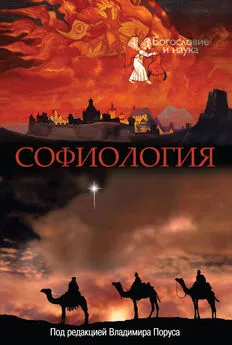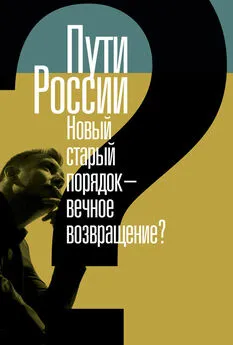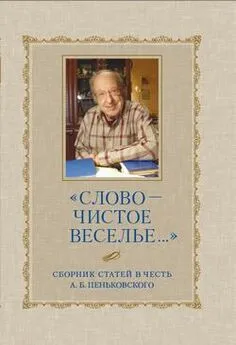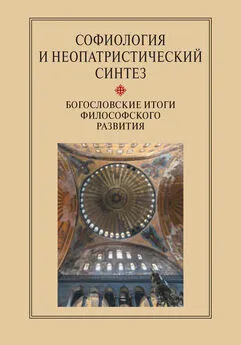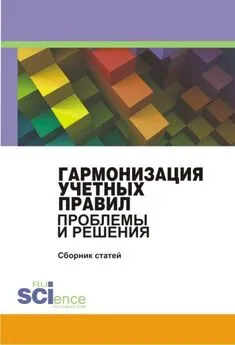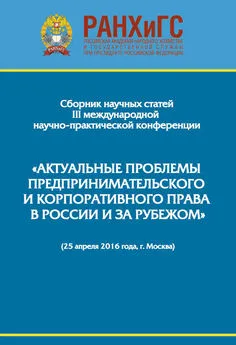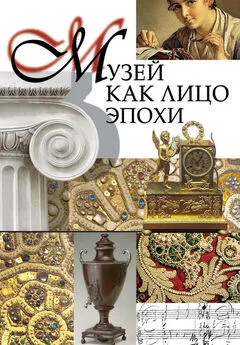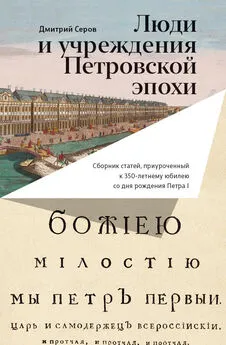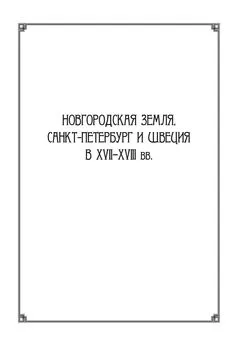Сборник статей - Софиология
- Название:Софиология
- Автор:
- Жанр:
- Издательство:Литагент «ББИ»bb9e3255-c253-11e4-a494-0025905a0812
- Год:2010
- Город:Москва
- ISBN:978-5-89647-221-6
- Рейтинг:
- Избранное:Добавить в избранное
-
Отзывы:
-
Ваша оценка:
Сборник статей - Софиология краткое содержание
Русская софиология конца XIX – начала XX вв. – самобытное и примечательное явление мировой культуры. Вокруг него продолжаются споры, острота которых свидетельствует о непреходящей актуальности поднятых русскими софиологами проблем, важнейшие из которых – способность христианской цивилизации ответить на вызовы времени, необходимость единения человечества перед лицом нарастающих глобальных кризисов, обновление веры, поиски новой рациональности как культурной ценности, разумных оснований диалога между западным и восточным христианством, между христианством и другими мировыми и национальными религиями, между различными культурами.
Настоящий сборник составлен из докладов, представленных на международной конференции «Русская софиология в европейской культуре» (Звенигород, 1–5 октября 2008 г.), организованной Библейско-богословским институтом св. ап. Андрея и Институтом восточных церквей (Регенсбург) при поддержке Католического комитета по культурному сотрудничеству (Рим, Италия).
Софиология - читать онлайн бесплатно ознакомительный отрывок
Интервал:
Закладка:
497
Там же. С. 231.
498
Здесь нельзя не вспомнить о космическом Эросе Платона, вселенском Уме (Нусе) Аристотеля, мировой Воле у Шопенгауэра, Софии Вл. Соловьева, обо всех этих гипостазированных, отдельных, обособленных творящих силах, оторванных от Творца. Одновременно нельзя не признать, что библейская концепция Бога-Творца стоит несравнимо выше всех их: единый Бог вбирает их, выступая их обладателем и носителем всех.
499
Аверинцев С.С. София // Аверинцев С.С. К уяснению смысла надписи над конхой центральной апсиды Софии Киевской. В кн..: София – Логос. Словарь. Киев: Дух i Лгера, 2001. С. 231.
500
ЛинцбахЯ. Принципы философского языка. Опыт точного языкознания. Пг, 1916. С. 56–57.
501
Аверинцев С.С. София // Аверинцев С.С. К уяснению смысла надписи над кон-хой центральной апсиды Софии Киевской. В кн.: София – Логос. Словарь. Киев: Дух i Лгера, 2001. С. 227.
502
Профессор Мадридского университета Георгий Ц. де Вильярдо писал: «Проф. прот. Сергий Булгаков, бывший марксистский профессор. прославился как богослов, развивший свое „софиологическое“ богословие, существовавшее в зародыше в Восточной Церкви с самых древних времен. Следует заметить, что большинство православных иерархов квалифицируют его богословие как неправоверное. Развивая свои доктрины о Святой Софии Премудрости Божией, прот. С. Булгаков, по мнению православных традиционных богословов, превращает ее в некую „Четвертую Ипостась“ в недрах Пресвятой Троицы, придавая ей характер вечного женского начала. Неясно чувствуется в богословии Булгакова скрытая тенденция к известного рода отождествлению Святой Софии Премудрости Божией с Пресвятой Девой и Церковью „Невестой Жениха“, как выражается автор. С другой стороны, прот. С. Булгаков, как кажется, был сторонником древней теории оригеновского богословия „апокастасиса“, то есть конечного
503
In Sophia the Wisdom of God. Ап outline of Sophiology, Lindisfarne Press 1993 (originally published as The Wisdom of God: А brief Summary of Sophiology, London 1937), Bulgakov explicitly developed Solov’ëv′s sophiology, but tried to detach it from Gnosticism and to connect it more to the Orthodox Church fathers.
504
See e.g. Paul Valliere, Modern Russian Theology: Soloviev, Bukharev, Bulgakov, 2000, p. 4; Antoine Arjakovsky, «The Sophiology of Father Sergius Bulgakov and Contemporary Western Theology», in St Vladimir′s Theological Quarterly, vol. 49 (2005) 1–2, pp. 219–236; Myroslav Tataryn, Sergei Bulgakov: Eastern Orthodoxy engaging the modern world, in Studies in Religion, vol. 31, nr. 3–4, 2002, pp. 313–322; Kristina Stoeckl, Community after Totalitarianism. The Russian Orthodox Intellectual Tradition and the Philosophical Discourse of Political Modernity, Frankfurt am Main, 2008.
505
Vladimir Solov’ëv, Smysl′ liubvi (The Meaning of Love, 1892–1894), republished in VP Shestakov, Russkii Eros ili filosofiia liubvi v Rossii, Moscow Progress 1991, pp 19–77 (according to the publication in Vladimir Solov′ev, Sobranie sochinenii v 8 tomakh, t. 6, St. Petersburg 1903, pp. 493–547), further SL.
506
Both Tolstoi and Solov’ëv were Orthodox Christians and would call their Christian denomination pravoslavie. Their ′orthodoxy′ however is often questioned and never fully accepted by Russian Orthodox Church officials. In 1901, the church excommunicated the overtly anti-ecclesiastical Lev Tolstoi.
507
The Orthodox Slavophile philosopher Aleksei Khomiakov introduced the adjective ′sobornala′ as a translation of ′catholic′ (katholikos) in the Nicean creed. Sobornost′ as a substantive for subsequent Orthodox lay theologians denotes Church community According to I. Esaulov, Katogorlla sobornostl v Russkolliterature, Petrozavodsk, 1995, sobornost′ is the leading category ( vedushchala kategorlla) of Russian Orthodox Christianity.
508
Max Weber, «Geschäftsbericht und Diskussionsreden auf dem ersten Deutschen Soziologentage in Frankfurt.» (1910), in Max Weber. Gesammelte Werke, Digitale Bibliothek, Mohr Siebeck 2005, p. 11771. References to Weber are made to this digital library that is further referred to as GW.
509
The Osnovy soclal′nol koncepcll Russkol Pravoslavnol cerkvl are referred to as Osnovy and were published in 2000 on the Internet, http://www.mospat.ru/index.php?mid=90.
510
The Osnovy never refer to sophiology or to Solov’ëv and Bulgakov The only ′contemporary′ Orthodox thinker referred to is the Slavophile philosopher A.S. Khomiakov (1804–1860)
511
Polity refers to the Greek polis and signifies political society In contrast with polity, society is not political but civic society (bürgerliche Gesellschaft.) The distinction state and society is a distinction that ′came up′ with the rise of the social question is the claim made here.
512
Weber, «Die» Objektivität «sozialwissenschaftlicher und sozialpolitischer Erkenntnis» in GW, p. 4527.
513
Aristotle, Politeia (Politics),LOEB, book I.1.1-8
514
Weber, Die Wirtschaftsethik der Weltreligionen in GW, p. 6396. Through his definition of sociology as the study of meaningful actions, in fact for Weber these are the life spheres that are the main object of sociology
515
Weber, «Wissenschaft als Beruf.», in GW, p. 5261. One could claim that Weber is normative in his concept of rationality and rational social action as essential for socialization.
516
Bulgakov, Kratkii ocherkpoliticheskoieconomi, further KOPE, in O rynkakh prikapitalis-ticheskom proizvodstve, Moscow, Astrel′ 2006, p. 173.
517
Weber, Wlrtschaft und Gesellschaft, in GW, p. 1439
518
Lev Tolstoi, Krelcerova sonata: povest′; Posleslovle k «Krelcerovol sonate», Moscow 1911.
519
See P Moeller, Postlude to the Kreutzer Sonata, 1988, p. 147.
520
Weber, Die Wirtschaftsethik der Weltreligionen in GW, p. 6389.
521
The importance of work for salvation Bulgakov introduced in Filosofiia Khoziaistva. Mir kak Khoziaistva. Tom 1 (Moscow, Put′ 1912), translated by Catherine Evtuhov as Philosophy of Economy. Part 1. The World as Household, Yale University Press 2000.
522
From podvizhnik, hero or martyr, litt. ′one that moves (things)′. Translated into English as spiritual fight or asceticism.
523
Bulgakov, Philosophy of Economy, p. 72.
524
Weber, Die Protestantische Ethik und der Geist des Kapitalismus (1904-5), GW, p. 5312 ff.
525
Bulgakov, Svet Nevechernii, Sozercaniia i umozreniia, Moscow 1994, p. 113. Bulgakov developed Gregorii Palamas′ distinction of the ousia and energeia of God. The energeia of God are the precondition of sophiology as positive theology
526
See M. de Courten, History, Sophia and the Russian Nation. A Reassessment of Vladimir Solov′ev′s Views on History and his Social Commitment, 2004 on Solov′ev′s historiosophy
527
The minor sophiological trilogy consists of the volumes DrugZhenikha. Opravoslavnom pochitanii Predtechi, Paris 1927, Kupina Neopalimaia Opyt dogmaticheskogo istolkovaniia nekotorykh chert v pravoslavnom pochitanii Bogomateri, Paris, 1927 and Lestvitsa lakovlia. Ob Angelakh, Paris 1929. His major sophiological trilogiy is O Bogochelovechestve, Vol I Agnec Bozhii, Paris 1933, Vol II Uteshitel′, Paris 1936 and Vol
III Nevesta Agnca, Paris, 1945.
528
Bulgakov, Sophla, p. 143.
529
Antoine Arjakovskii, «The Sophiology of Father Sergius Bulgakov and Contemporary Western Theology,» published in Russian in S.N. Bulgakov: Rellglozno-fllosofskll put′, 2003, pp.127–139.
530
Bulgakov, Philosophy of Economy, chapter VIII, «The phenomenology of economy.»
531
See Govert Buijs, Tussen God en duivel. Totalitarisme, politiek en transcendentie bij Eric Voegelin ( Between God and Devil. Totalitarianism, politics and transcendence in the work of Eric Voegelin), Boom 1998. Buijs makes it clear that Weber′s sociology in principle is unable to discern between God and devil.
532
Bulgakov, Philosophy of Economy, p.38.
533
See also Myroslav Tataryn, «Sergei Bulgakov: Eastern Orthodoxy engaging the modern world» in Studies in religion/Sciences Religieuses 31/3-4 (2002), pp. 313–322, p. 315 «In the process of this search Bulgakov co-opts and develops the notion of Sophia as the all-embracing hermeneutic.»
534
Tri razgovora o voine, progresse i konce vsemirnoi istorii, so vkliucheniem kratkoi povesti ob Antikhriste is prilozheniiami. (1900), translated as War, Progress, and the End of History: Three Conversations, Including a Short Story of the АпИ-Christ, Lindisfarne Press, 1991, further referred to as Tri razgovora.
535
Bulgakov, Sophla, 1993, p. 134, p. 140 (see also note 1)
Читать дальшеИнтервал:
Закладка:
